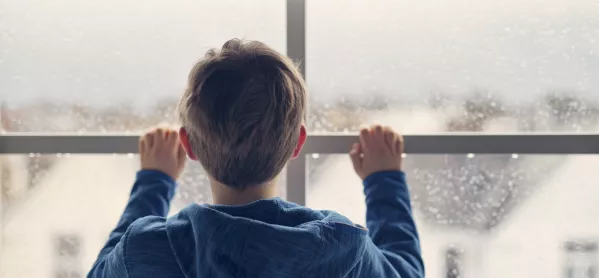Concerns have been raised about the one in four pupils who are not attending special schools this term during the Covid-19 pandemic.
Amy Skipp, the director of ASK research, said new figures have shown that attendance in special schools and colleges has been between 70 and 75 per cent.
And separate figures show that a similar proportion of pupils with education, health and care plans were in attendance across all state schools last week - at 77 per cent.
Funding: SEND’s financial future is fragile, DfE admits
Attendance: 876,000 pupils off for Covid-related reasons
Coronavirus: School ‘not the place for SEND pupils during lockdown’
Speaking at a Westminster Education Forum conference on special educational needs today, Ms Skipp said: “That means we have got one in four children who should be in a specialist special school placement but are actually sat at home.
“What do we think this means is actually happening to them?
“Are they being supported remotely? Have they deregistered and gone for home education? Are they getting any of their health and care input that they are legally entitled to?
Coronavirus: Fears about SEND pupils
“I think this raises real questions now and going forward, and that is before we look at the effects that we know this period has had on these children and on potentially quite vulnerable families. We talk a lot about ‘post-pandemic’, but, for these children, a lot of stuff has not gone back to normal.”
Ms Skipp said that ASK research found that, during the first lockdown, 30 per cent of families of pupils with SEND said they had no IT access.
She added: “This is physical access we are talking about and that is on top of what we know about children with SEND, who might find online learning and engaging with screens very difficult.
“Schools were trying a range of methods and some worked for some families and some didn’t.”
Ms Skipp said that research before the summer holidays also revealed that there were concerns within the sector about pupils not attending special schools in September.
She said that before the summer, research showed that 14 per cent of providers predicted that some children would not return in September because of concerns over medical vulnerability.
Last month Ofsted’s chief inspector, Amanda Spielman, told the online National Children and Adult Services Conference (NCASC) that many parents of children with SEND had been told that schools “can’t accommodate them” this term.
She added this was “because it’s too difficult, because Covid risk assessments won’t allow it. It’s deeply concerning and, understandably, many parents feel cut adrift”.
The latest DfE figures show that the proportion of pupils with education, health and care plans in all state schools has dropped week on week since the beginning of last month.
Data shows that 77 per cent of pupils with EHCPs were in school on Thursday last week.
This has fallen from 84.1 per cent three weeks earlier.
The figure includes any pupil with an EHCP in primary, secondary, special or alternative provision schools.
The proportion of pupils with EHCPs attending schools is lower than the overall attendance figure.
Nationally, the overall attendance figure was 82.9 per cent last week.
The latest DfE data also showed that around three-quarters of secondary schools in England had one or more students off isolating after contact with a confirmed Covid case at their school last week.
And the proportion of all state schools with one or more pupils off as a result of potential contact with a Covid case at their school has risen from 29 per cent to 36 per cent in the same period.
